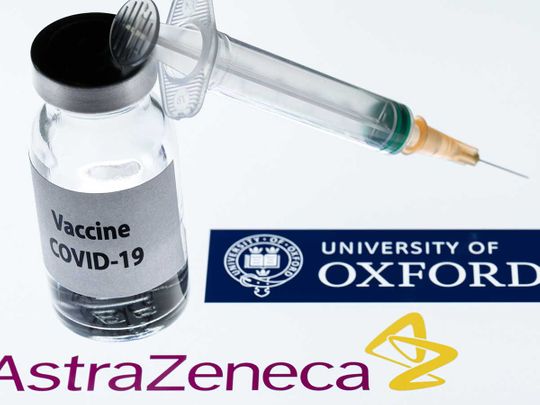
Dublin: Ireland on Sunday became the latest country to suspend its rollout of AstraZeneca jabs over concerns about post-jab blood clots despite the firm insisting there was no risk.
Vaccinations are a key tool to end the worst of a pandemic that has killed more than 2.6 million people since it emerged in China in late 2019.
So far more than 350 million doses have been doled out across the world, but countries including Denmark, Norway and Bulgaria suspended the rollout of jabs from the Anglo/Swedish pharma giant this week after reports of blood clots developing in patients who had received the shot.
The World Health Organisation, Europe's medicines watchdog, governments and experts have stressed that no causal link has been established between the vaccine and blood clotting and insisted that the vaccine is safe.
An AstraZeneca spokesman said it had found no evidence of increased risk of blood clot conditions after analysing reported cases from more than 17 million doses.
"In fact, the reported numbers of these types of events for COVID-19 Vaccine AstraZeneca are lower than the number that would have occurred naturally in the unvaccinated population," said the spokesman.
AstraZeneca's shot is among the cheapest available and forms a bulk of deliveries to poorer nations under the WHO-backed Covax initiative, which aims to ensure the vaccines get to all parts of the globe.
'We must have confidence'
A spokesman for Ireland's health ministry told AFP that the rollout had been "temporarily deferred" after the country's advisory panel recommended a suspension because of concerns raised by Norwegian officials.
"It has not been concluded that there is any link" between the AstraZeneca vaccine and the blood clot cases in Norway, and action has been taken "pending receipt of further information", Ireland's deputy chief medical officer Ronan Glynn said in a statement.
Norwegian officials said on Saturday the country had reports of people "bleeding under the skin" and "severe cases of blood clots or brain haemorrhages in younger people" who had received the shot.
AstraZeneca became embroiled in a bitter row with European leaders earlier in the year when it announced it would not be able to supply the number of doses it had promised.
Since then, European leaders have bitterly criticised the company and cast doubt on the vaccine's efficacy while at the same time blocking some exports of doses to destinations outside the European Union.
French Prime Minister Jean Castex, however, defended his country's decision to carry on with the AstraZeneca jab saying on Sunday France had found no reason to suspend the rollout.
"At this stage, we must have confidence in this vaccine," he said, highlighting instead the danger of leaving large sections of the population unprotected from Covid.
France is facing a hospital crisis with intensive care beds in the Paris region running out and patients having to be taken to other parts of the country.








